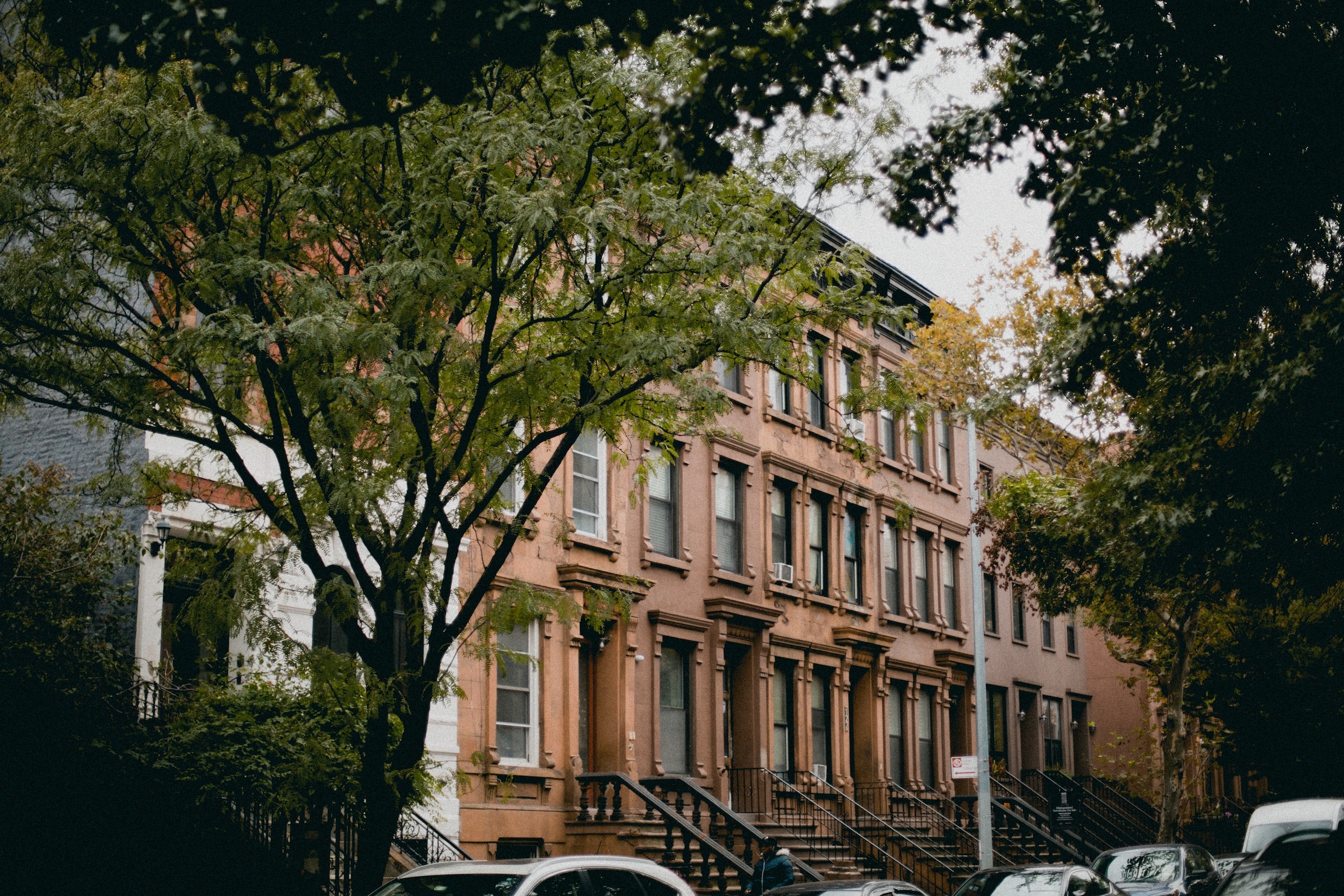Is it time to upsize from your apartment? Should you downsize from your family home? Check out our tips on rightsizing your home.
What Does Rightsizing Your Home Mean?
Rightsizing your home means re-evaluating your current home situation and making an adjustment, whether that be for more space or less.
Downsizing may be a great move if you consider yourself a minimalist and have lots of extra room but not many material possessions. If you’re finding yourself with too much to keep up with and not enough time to do so, downsizing also might be a good option for you. Retirees and empty nesters are typically more inclined to downsize as well, with the children gone and no need for a home office.
Upsizing is a great move for those who find themselves a little cramped in their current home and in need of some extra storage or living space. Upsizing to a nicer neighborhood may also be the move for you. If your family is expanding, upsizing your home might be a non-negotiable as well.
When rightsizing your home, it’s important to take into consideration the cost difference between apartments and condos.
If you are considering purchasing your own condo, expect to pay much higher up-front costs than if you choose to rent an apartment. However, don’t let these expenses scare you away, as condos are a great investment for those looking to stay in one location for a handful of years or more.
When you choose to rent an apartment, you will generally be required to cover the first month’s rent along with a security deposit and an application fee. The additional costs you can expect while living in an apartment can also include utility fees, parking fees, storage fees, and pet fees.
Purchasing a condo, on the other hand, generally requires a sizable down payment and closing costs. Additionally, condo owners will typically have to pay a monthly HOA fee, which covers any routine exterior maintenance on your building, the upkeep of amenities, and some utilities. This fee tends to be around $200 for a smaller building, to up to several hundred for larger complexes. Additional expenses that come with living in a condo include utilities and any maintenance or upkeep within the interior walls of your space.
Condo vs. Apartment Living
Both condos and apartments are great options for those looking to rightsize their family home. Let’s take a look at some of the pros and cons of condo vs. apartment living.
- When you live in a condo, your space will be more customizable than that of an apartment. For example, if you want to paint the walls or add all new kitchen appliances, you’re free to do that. As for apartments, you’re still able to make some updates, but you should expect to revert any of your crafty endeavors back to its original upon move-out.
- Maintenance-wise, apartment living takes the cake. As you are typically not responsible if your refrigerator randomly breaks down in your apartment, you are the responsible one to get that replaced if you’re a condo-owner. Having some added peace-of-mind that you’re pretty much hands-off when it comes to routine or random maintenance is a plus for renters.
- The types of amenities offered at both condos and apartments is also something worth noting. For the most part, washer and dryers, green space, and some sort of common room are offered as amenities in both condos and apartments. Since condos attract owners rather than temporary tenants, there tends to be more of an incentive to feature more attractive amenities in the condo community. Some luxury condo amenities can include valet-service, coffee shops, concierge, spas, impressive rooftops, and more.
- If you’re not sure where you’ll be in the next year or so, apartment living may be a good fit for you. With the flexibility of relocation for renters, this is a great option for anyone who is planning to move to a new location for just a year or two before packing up and moving again.
- Neighbors are also another factor to consider when it comes to apartment vs. condo living. When you’re a condo owner, your fellow neighbors are generally there for 5-15 years. When you’re renting, your neighbors typically don’t stay for more than a few years at a time. If building relationships with your neighbors is important to you, condo living may be your best bet.
How to Downsize From a House to a Condo
After rightsizing your home and discovering that downsizing from a house to a condo is the right move for you, it’s time to spring into action.
There are many adjustments when it comes time to make the transition from home to high rise. While this may seem like a huge shift for you, it can prove to be such an exciting move for many. Below are a few tips for how to downsize from a house to a condo:
- Get in touch with your trusted Luxury Living professional. Having an experienced agent by your side throughout this process will make for less headaches for you and assure you that things are moving in the right direction.
- What is the goal of your move? After you find your trusted agent, it’s time to sit down and have a conversation with them about the goal of your move and what you’re looking for in a new condo. Since you plan to downsize from a house to a condo, this may be a two-part transaction. Let your agent know your situation and they will be able to help you list your current home all whilst finding you a new condo.
- Create your condo checklist. When you dive into your new condo checklist with your broker, be sure to include everything from the style of the building to any features or finishes and location. From there, your agent will get you set up on the MLS to start receiving new condo listings daily.
- Get pre-approved. Note, as you begin shopping for your new condo, it’s important to get pre-approved first. This will allow you to have a leg up on other buyers when it comes time to put an offer in.
- Begin touring homes. If you find a home that you’d like to explore more of, connect with your broker and set up a time to explore more in person.
- Land the deal. After you find a home you like and are ready to make the offer, your real estate agent will help you get the deal with their many negotiating tactics and strategies.
- Time to close. If you hear the good news that your offer was accepted, there are just a few additional steps you will need to take when closing on your home. To uncover the final steps of your condo buying journey, click here.
Downsizing Home Checklist for a Better Condo Moving Process
If you’re in the closing process for your new condo, it’s time to start running through the checklist and begin your downsizing process:
- Get your moving plan in place. When is your move-in date? And do you need to hire movers? Begin working on finding movers within your budget and time frame, as this will allow for a more seamless moving process when your moving day rolls around.
- Consider creating a floor plan for your new condo and decide which of your larger furniture pieces will fit and which won’t be making it to the new place. Getting the larger items sorted out first makes the little stuff much easier.
- Create a vision for your space. After you’ve decided which big furniture items you are keeping, it’s important to consider if you will be redesigning your new space. Creating a vision for your space will help when it comes time to begin paring down your smaller furniture and decor pieces throughout your current home. Click here for more tips and tricks when starting the design process.
- Start paring down your belongings. Once you have a plan in place with where your furniture will go and the new look and feel of your space, it’s time to start paring down your belongings in your current home. Start by taking inventory of everything within your home and begin making a checklist of what items to move into your new condo and which items to part with. Remember, every little thing you can get rid of when it comes time to move makes the moving process much easier.
- It’s packing time! After you’ve finished decluttering your space, it’s time to get packing. One thing to note when packing: be sure to leave out a few day-of and next-day items like your toothbrush and a change of clothes, as you probably won’t be able to tackle all of your boxes on move-in day.
- The waiting game. So you’re all packed up, you have your moving plan in place, and a vision for your brand new condo. What next? If you’re all geared up and ready to go, it’s just a waiting game until move-in day.
Rightsizing your home is a big change and there are many factors to be considered before doing so. If you find yourself asking questions about if rightsizing is the best move for you, connect with the experienced team of Luxury Living professionals today. Whether you choose to move to a Chicago condo or apartment, we are here to help you every step of the way.







